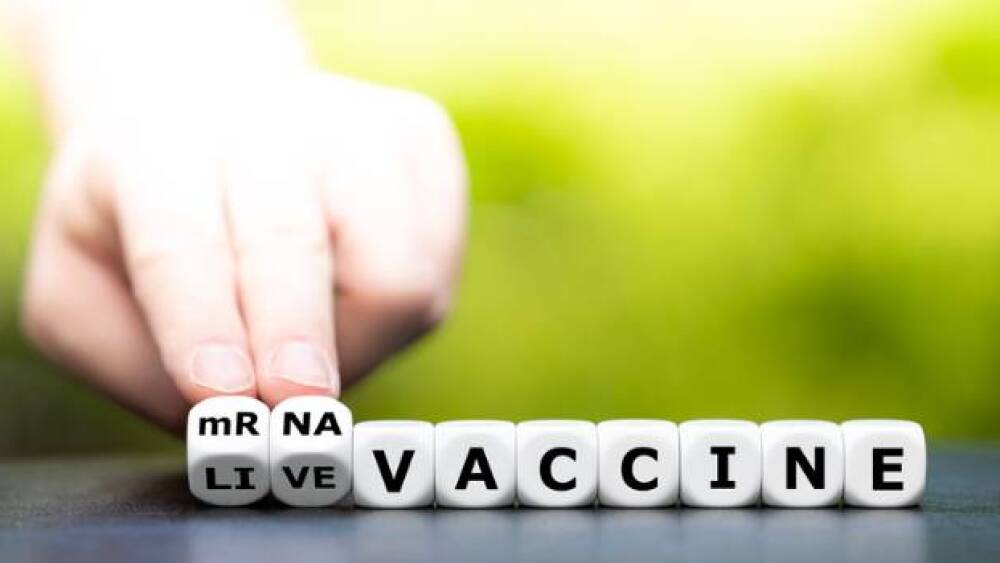T follicular helper immune cells help antibody-producing cells create increasingly robust antibodies and also enhance the formation of certain types of immune memory.
Both the Pfizer/BioNTech and Moderna mRNA vaccines are approximately 95% effective against the SARS-CoV-2 virus, and appear to be somewhat effective against variants, too. Now researchers at Washington University School of Medicine in St. Louis (WU-ST) and St. Jude Children’s Research Hospital (St. Jude), have determined the reasons for such high effectiveness.
In a preprint published online in Cell, co-corresponding author Philip Mudd, MD, Ph.D., assistant professor of emergency medicine at Washington University, and 29 colleagues from multiple universities in the U.S., Australia, Germany and Wales pegged the success of the Pfizer/BioNTech and Moderna COVID-19 vaccines to the “robust and persistent T follicular helper cell response” that they elicit.
T follicular helper immune cells help antibody-producing cells create increasingly robust antibodies and also enhance the formation of certain types of immune memory. The T follicular helper cell response drains lymph nodes for up to six months after vaccination, and the vaccines restrict the immunodominant SARS-CoV-2 epitopes.
In reaching those conclusions, the authors used fine-needle aspiration to drain axillary lymph nodes from 15 volunteers who were vaccinated with the Pfizer/BioNTech vaccine. They then evaluated the T cell receptor sequences and the phenotype of the lymph node CD4+ T (TFH) cells.
They found “a strikingly immunodominant HLA-DPB1 04-restricted response” to the spike antibody “in individuals with this allele,” and noted that circulating spike-specific TFH maintain “nearly constant frequencies” in lymph nodes six months after vaccination. This suggests that TFH cell responses are an important factor in establishing long-term immunity.
Because many of the T follicular helper cells appear to be activated by conserved portions of the SARS-CoV-2 virus, there is hope that the mRNA vaccines may help people continue producing protective antibodies even as the virus mutates.
“The longer the T follicular helper cells provide help, the better the antibodies are and the more likely you are to have a good memory response,” Mudd said in a statement. “With the variants, especially Delta and now Omicron, we’ve been seeing some breakthrough infections, but the vaccines have held up very nicely in terms of preventing severe disease and death. I think this strong T follicular helper response is part of the reason why the mRNA vaccines continue to be so protective.”
Protection against Delta and Omicron variants may be less than Mudd hopes, however, if recent statistics from the U.K. are accurate. Data recently released from the U.K. Health Security Agency, “SARS-CoV-2 variants of concern and variants under investigation in England – Technical briefing 33” noted that mRNA vaccines followed by an mRNA booster are more effective at preventing symptomatic disease than combinations of mRNA and other types of vaccines.
Specifically, “Among those who received an AstraZeneca primary course, vaccine effectiveness was around 60% two-to four weeks after either a Pfizer or Moderna booster, then dropped to 35% with a Pfizer booster and 45% with a Moderna booster by 10 weeks after the booster.”
In contrast, “Among those who received a Pfizer primary course, vaccine effectiveness was around 70% after a Pfizer booster, dropping to 45% after 10-plus weeks and stayed around 70 to 75% after a Moderna booster up to 9 weeks after booster.”
In all cases, vaccine efficacy was notably higher against the Delta variant than against the Omicron variant. The agency cautioned against drawing conclusions, however, because of the numbers of those assessed (147,597 people with Delta and 68,489 with Omicron) and the possibility of sample bias.
Nonetheless, mRNA vaccines may well be the best choice in terms of efficacy. The T follicular helper cells, the researchers explained, “help the body crank out better and better antibodies.”
The first antibodies that respond to an immune challenge – an infection or vaccination – are less robust than those that respond later. To borrow an analogy, the B cells need to go through a kind of boot camp in germinal centers in the lymph nodes in order to produce more powerful antibodies. The T follicular cells are the B cells’ drill sergeants, providing the instructions that enable antibody-producing cells to make increasingly effective antibodies, encouraging the best of the best to multiply and, sometimes, to transform into long-lived antibody-producing cells or memory B cells. Those cells, then, can provide more durable protection against severe disease and death.
The research team now is analyzing how T follicular helper cells respond after booster shots and whether these cells are implicated in the weaker antibody response exhibited by those with compromised immune systems.






